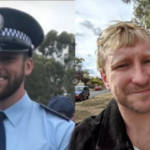When a Confession is Not What It Seems

A suspect’s confession can be powerful evidence to present to a jury. Regardless of whether they stand by their ‘admissions’ or not, self-incriminating statements have led to innocent people being convicted and serving long sentences in prison.
Mental illness aside, it can be difficult to understand why anyone would confess to a crime they did not commit, but it certainly does occur for a range of reasons – from trying to appease police and get out of the immediate situation, to seeking notoriety, to sheer panic. The US Innocence Project has exonerated hundreds of people who were wrongfully convicted – reporting that almost 30 per cent of them had confessed to the crime.
Although we do not record similar data in Australia, there have been several disturbing cases where innocent people have falsely confessed to very serious crimes.
The False Confession of Barry Mannix
One of those cases involved 18-year-old Barry Mannix, who confessed to his father’s brutal murder in 1984. Just before his trial commenced, another man confessed to the murder and implicated another three men. Mannix was not one of the four men who were eventually convicted and imprisoned for their part in his father’s death.
After Mannix gave his confession, he said to his mother, “I want you to know I didn’t do it.”
When he was eventually released from prison, Mannix said police had obtained his confession through coercion. Referring to his police interview, Mannix stated:
“He told me CIB were fed up with my lying and [the detective] started asking me how I did it and why, and when I told him that I knew nothing, nothing about it, he slammed his fist on the table, got up and grabbed me by the hair the back of the head and pulled his other hand in a clenched fist up to his side and said: ‘I ought to smash you right in the face you shithead’.”
He filed a complaint against the officers in question, outlining numerous breaches of the Queensland Criminal Code. Specifically, Mannix alleged the officers: conspired to pervert the course of justice, unlawfully deprived him of his of liberty, assaulted him, used threats to compel him to confess, fabricated evidence and committed perjury.
After fifteen months of investigation, the Police Complaints Tribunal released its report in March 1986. As usual, the Tribunal found no reason to recommend disciplinary action against the police involved, stating:
“All Police Officers to whom any of BARRY MANNIX’S complaints could possibly relate have been carefully examined. Each stoutly denies any knowledge of or participation in any of the behaviour alleged.”
The Tribunal’s findings were slammed by the Queensland Opposition, civil libertarians, and was subjected to intense media pressure. Defending his own, the Queensland Police Minister responded by endorsing the finding and declaring the case closed.
Mannix changed his name and moved away from his home on the Gold Coast. His mother said it was a miracle her son escaped prison, and expressed her disappointment with the Tribunal’s report.
“What frightens me is that it is true what the public says – you can’t win against the police,” she said.
After the incident, the police force faced intense scrutiny about its interviewing practices; and by the end of 1988, the Queensland Government announced that all police interviews would be videotaped.
Australian Police Interviews
A recent study found that videotaping police interviews has a significant effect on the behaviour of the police while the camera is switched on; although police continue to engage in unscrupulous practices to extract ‘confessions’ before interviews commence, and even during breaks.
In the US, police interrogations continue to follow an accusatory model and use aggressive tactics promoted by training in the Reid interviewing technique, which seeks to secure a confession by making people feel anxious about denying their involvement in a crime and then managing their anxiety to make them feel more at ease about confessing.
Diane Sivasubramaniam, a Senior Lecturer in Psychological Sciences at Swinburne University of Technology, says the Reid technique is not used in Australia, partly due to Australian laws that prevent police from using Reid tactics, such as confronting a suspect with fabricated evidence. Australian legislation also prevents police officers from lying to suspects during an interrogation.
Australian law enforcement practice the PEACE model for police interviews, which was developed in the United Kingdom. Using the PEACE model, police officers use “investigative interviewing techniques” that seek to discover information, rather than secure a confession.
While false confessions are always possible, Dr Sivasubramaniam says Australian police practices provide some safeguards which make false confessions less likely than in other jurisdictions.
Having said that, police in Australia use a range of other ‘tricks’ to extract confessions from people they suspect of crimes.
If you have been asked to participate in a police interview, it is important to seek legal advice from a specialist criminal law firm in order to ensure your interests are protected.






